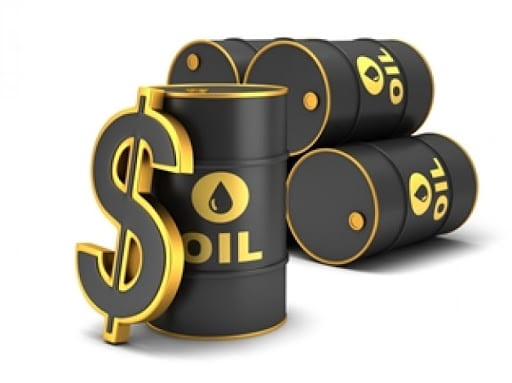The Public Interest and Accountability Committee (PIAC) has offered guidelines to the governments on how to generate more revenue from the petroleum sector than what the country is getting at the moment.
PIAC is a body that was set up and mandated by the Petroleum Revenue Management Act, 2011, (Act 815) to release two reports in a year, the semiannual and the Annual reports, on how the revenue generated from petroleum is utilized.
A Technical Manager at PIAC, Mr Mark Agyemang told 3news.com on the sidelines of the release of its 2020 annual report on Saturday May 29 that apart from good negotiations, the government will also have to scale up participation in the sector in order to generate more income.
“I have always been saying that if you want to earn more in the petroleum business you negotiate well and also you participate fully in the operations. It has been progressive from 2000.
“The petroleum agreements we signed somewhere in 2004, some in 2005.
“We have progressed over the years. If you look at the Jubilee Field and you compare it to the current Petroleum agreements that we have signed, it has been progressive all in the name of we derisking our basins, all in the name of becoming petroleum producer and attracting a lot more oil companies becoming competitive in the sub region and also by branbing the cure that we produce and sell ling in the international market. So it has been progressive.
“I won’t say we could have done more or we could have done worse but it has been progressive over the years.
“I think going forward it will continue to be that progressive probably we would be getting a huge chunk. To actually get more money from the operations as PIAC’s analysis have shown, you need to participate because the analysis show that we can get more revenue from the current participating interest which is our equity shareholding in the operations.
“So if you want to get more money put in more money.”
Regarding Parliament has over the years failed to act on PIUAC’s recommendations, Mr Agyemang said until the PRMA is amended to give PIACX the power to act on its on recommendations, Parliament will be blame for the development.
“It is parliament that has to do that. So until the PRMA is amended to allow PIAC to enforce the implementation of its findings the onus lies on parliament to enforce the rem commendations,” he said.
Meanwhile, for the time first time in several years the Ministry of Finance has in a record time, released its data on petroleum revenue to the PIAC to enable the body compile its 2020 annual report.
PIAC had indicated in its semiannual report for 2020 that the Ministry for the fourth time, failed to release data on the Annual Budget Funding Amount (ABFA) to enable the body add their data in the compilation of its reports on petroleum revenue utilization.
The ABFA is the statutory fund required to receive oil revenue earmarked for government expenditure.
PIAC is mandated by the Petroleum Revenue Management Act, 2011, (Act 815) to release two reports in a year, the semiannual and the Annual reports, on how the revenue generated from petroleum utilized.
“For the fourth time, the Ministry of Finance failed to provide ABFA utilization data for the compilation of PIAC reports.
“This makes it difficult to reconcile disbursements and expenditure and undermines the spirit of accountability as envisaged in the PRMA,” PIAC said.
This development attracted criticism from industry players including a former Deputy Minister of Finance Mona Quartey who has asked the Ministry of Finance to release the data to PIAC.
Speaking in an interview with TV3’s Alfred Ocansey ahead of the 2021 budget presentation on Friday March 12, Ms Mona Quartey said “To be honest I am at a loss on that because the Ministry of Finance’s obligation to PIAC is in the public interest , it is very important . They must send every information that is required and they have the check list and they must do it in a timely manner to PIAC.
“PIAC’s role being the watchdog on our petroleum revenue funds is very important. It so modelled on the Norwegian Petroleum Fund management. It ensures transparency and accountability therefore there is no reason why Ministry of Finance should not have released the information to PIAC . It may be late, that is fine because of the current situation things can happen.”
But PIAC has revealed that the narrative has changed.
Mr Mark Agyemang told 3news.com “PIAC over the years has released its report and initially it was five months, later it came to four months and three months but though our quarterly engagement with the Ministry of Finance , this year you realized that our reports was actually published just a month after the statutory deadline which was 15 of March.
“We released the report on 21st April but the report was ready before the 21st of April.
“Due to administrative and logistical challenges we had to release it on 21st of April and that was the first time since 2021 PIAC has released its report within a ,month after the end of the statutory deadline.
All this was due to good collaboration we had with the reporting institutions – GNPC, Ministry of Finance, Bank of Ghana , the Petroleum Commission, Energy Commission , GRA, the international oil companies. The response this year has been very good and forth coming and we hope that going forward we will keep it at that.”
By Laud Nartey|3news.com|Ghana


